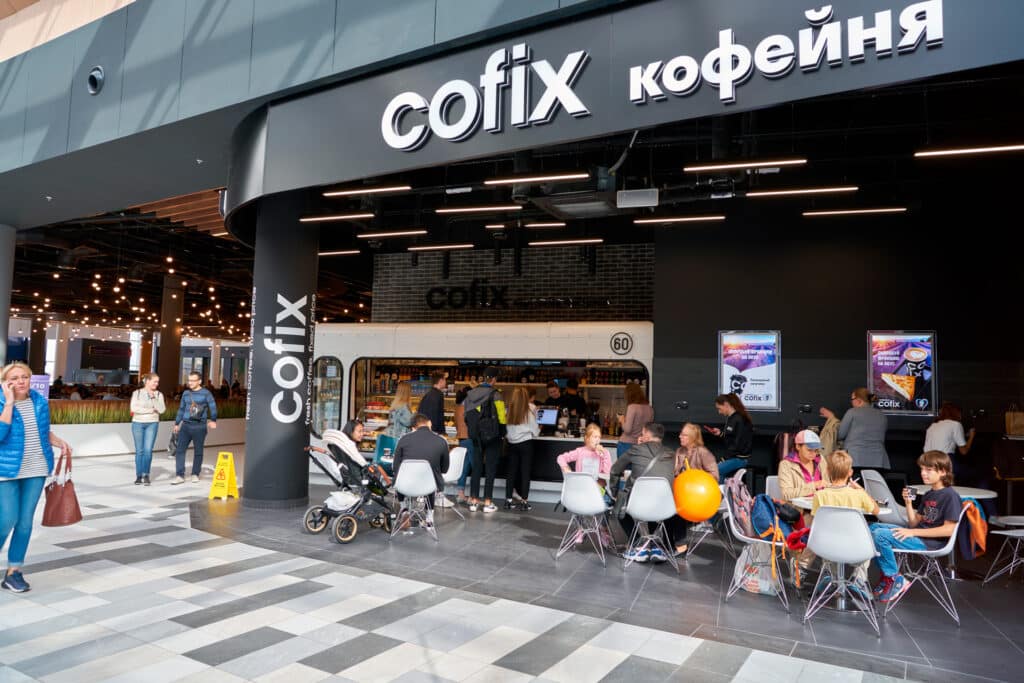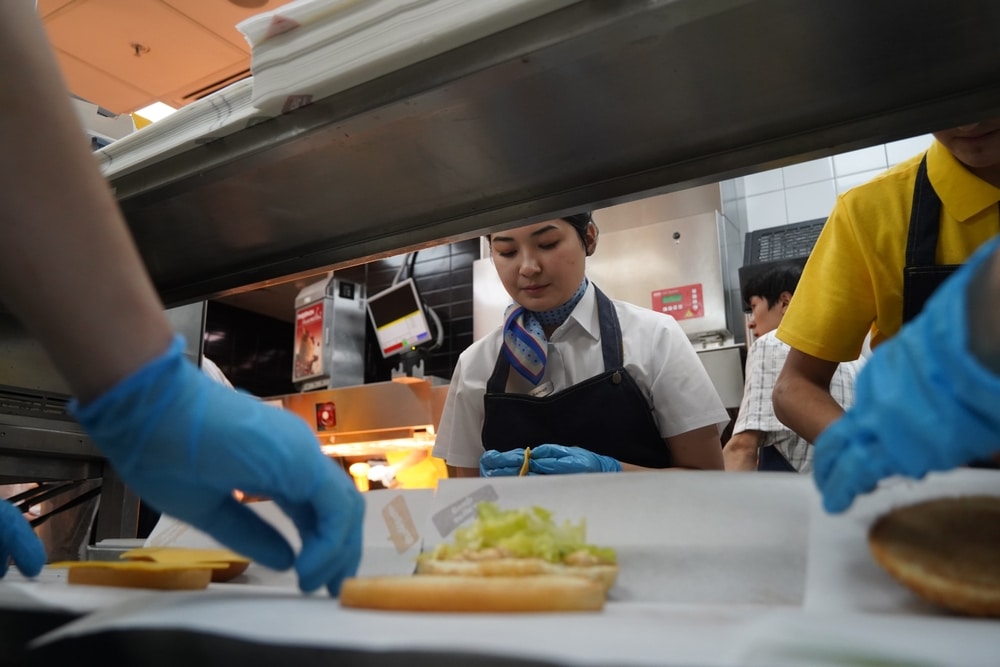Cofix makes U-turn back to Kazakhstan after initial market entry failure
Cofix, the Israeli café chain, plans to open about ten cafés in Almaty by the end of 2025 and aims to expand to 200 locations across Kazakhstan. This marks its second attempt to penetrate the Kazakhstani market.

Cofix, a café chain with fixed prices, was established in Israel in 2013 and runs more than 400 cafés in six countries: Israel, Belarus, Poland, Armenia, Spain and Russia. The latter accounts for 60% of the chain’s turnover due to its coffee production site in Russia. Kazakhstan is the next target for the chain’s expansion.
«We see a niche we can occupy. According to Project Café Europe 2024 by Allegra, there were 231 branded coffee shops in Kazakhstan in 2023. Over the past year, 27 new branded cafés were opened. This is a 13.2% increase. Allegra believes the market will grow by 8.7% per year and reach 350 cafés by 2028,» said Yekaterina Panova, business development director of Cofix in Russia and the CIS, during the World of Trade Convention in Almaty.
Cofix aims to convert these optimistic forecasts into rapid business expansion. The company plans to open 20 to 30 branded cafés in major cities, reaching a total of 200 cafés within five years.
«We want to localize our business in Almaty and Astana. These are two key locations we are prioritizing. Even though we’re thinking about Shymkent and Aktobe as well, Almaty is set to be our starting point. The strong restaurant culture in Almaty has also caught our attention. This is a mature market and we will be able to compete here very well. This is why we will start our expansion from Almaty,» Panova told Kursiv.media.
Cofix is going to start searching for venues, hiring staff and looking for suppliers soon. This process may take several months. «Usually, this process takes six to eight months from the point we start reviewing a market and negotiating with a partner to the opening of the first café. I hope we will achieve this goal in 2024 or at the start of 2025,» Panova said. During the first year of expansion in Kazakhstan, Cofix plans to launch five to seven cafés, with the main business scaling in 2026 and 2027.
Cofix relies on several formats in its business approach: standard (25 to 80 square meters), focusing on coffee drinks and offering a wide range of desserts and snacks; bakery (100 to 170 square meters), a restaurant concept with a focus on fresh bakery products and mini (6 to 12 square meters), offering coffee drinks with a limited menu of desserts and snacks in a «grab-and-go» format. Cofix will start its expansion in Kazakhstan with the standard and bakery formats.
«Mini formats aren’t part of our strategy in Kazakhstan. We know that people here tend to hang out in restaurants. Even though the grab-and-go format is the most popular in Russia, it isn’t necessarily popular here and we won’t be able to take over this niche. Nevertheless, we haven’t dropped it completely,» Panova explained.
Second attempt
In December 2020, Cofix opened its first 120-square-meter café in the Promenade shopping mall in Almaty. In June 2021, it did the same in Shymkent Plaza in the city of Shymkent. The company planned to open ten cafés in 2021 alone and 65 cafés by 2026.
Panova admitted that the first attempt to enter the Kazakhstani market was a failure. The company faced many difficulties, exacerbated by the COVID-19 pandemic. During the January events in 2022, Promenade was set on fire and Cofix’s partner dropped the idea of developing the concept in Kazakhstan. As a result, the café chain left the country.
«Our first café in Almaty was destroyed during the unrest. Our partner, who was supposed to be part of the project, decided not to invest in Kazakhstan. Given that such serious events require some time to be resolved, we decided to switch to other markets. Over the past two years, we have opened businesses in new countries. Although they are a little bit smaller in terms of size and potential reach, we managed to get prepared for entering the third country. As a result, we found ourselves in a position where we were ready to go to more complex markets such as Kazakhstan and Uzbekistan. Therefore, we are going back,» Panova commented on the company’s moves.
The second attempt is happening in conjunction with a local partner (no additional information is available). «Our partners have exclusive rights. In a new country or city, our first partner has an opportunity to develop this business as the only representative of Cofix. We are going to apply the same strategy in Kazakhstan. We are already negotiating with a local partner in Almaty with a main focus on this city. If the partner does well here in Almaty and is interested in new cities, we are ready to discuss this as well. If we work just in Almaty, we will look for new partners in other target cities on our own. We are still open for negotiations,» the Cofix representative in Russia and the CIS said.
The Israeli chain anticipates tough competition with other chain players, not just coffee sellers. Drinks and food (bakery, breakfast and salads) account for 60% and 40% of the company’s revenue, respectively. That is why Cofix wants to enter the ready-to-eat food segment as well.

To achieve this ambitious goal, the company is looking for local suppliers. Cofix plans to localize the production of lunch, bakery and cold dishes. According to Panova, it won’t be an easy task.
«In terms of logistics, Kazakhstan is a very difficult market. There are few big cities in the country and they are divided by huge distances between them. This is why 4PL logistics isn’t that developed here. Even big brands interested in entering the Kazakhstani market face difficulties as they are used to controlling product quality through centralized logistics. Many good producers in Kazakhstan meet all the necessary food requirements but suffer from a lack of 4PL sales channels in retail. In our business model, the centralization of the assortment is mandatory and I hope that all those strong international brands that come to Kazakhstan will help us facilitate the development of local producers. This is our goal,» she said.
Regarding coffee products, Cofix plans to import them from neighboring Russia, where the company runs a roastery.

